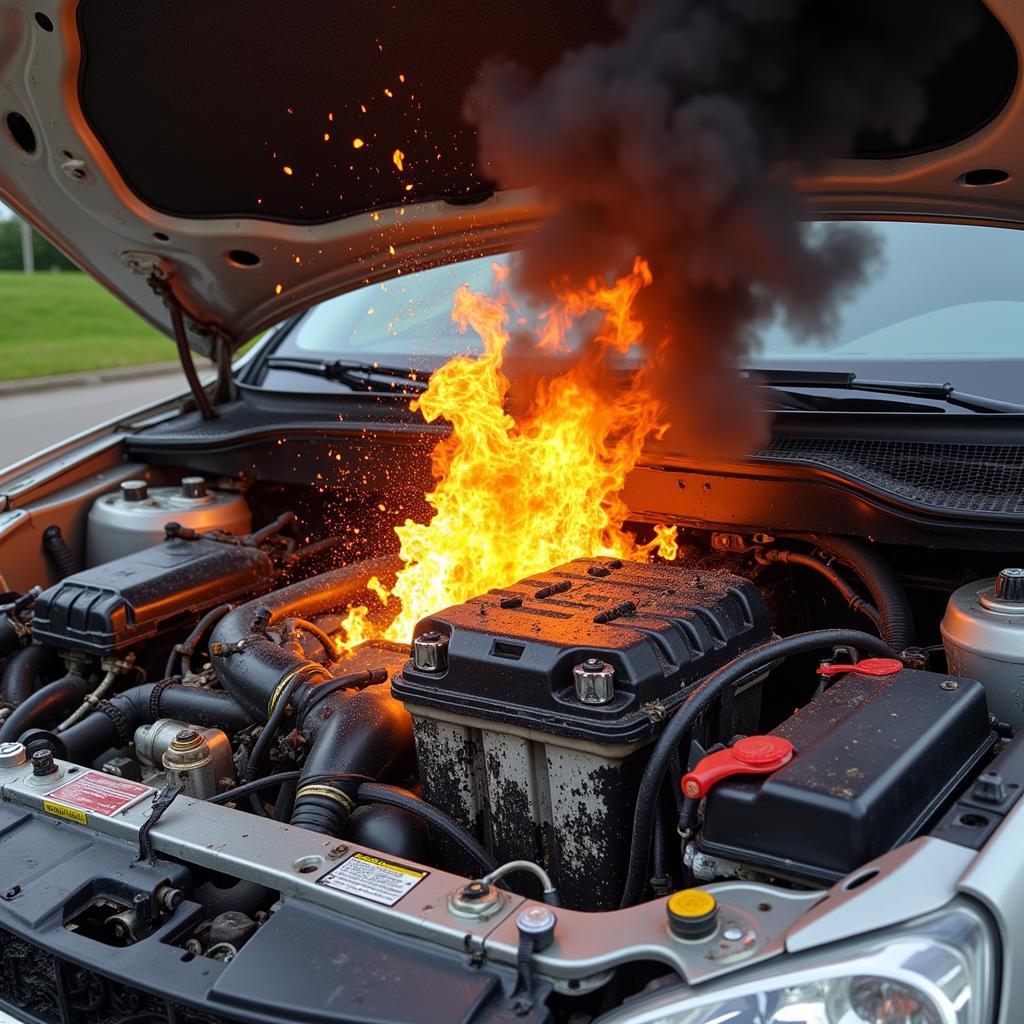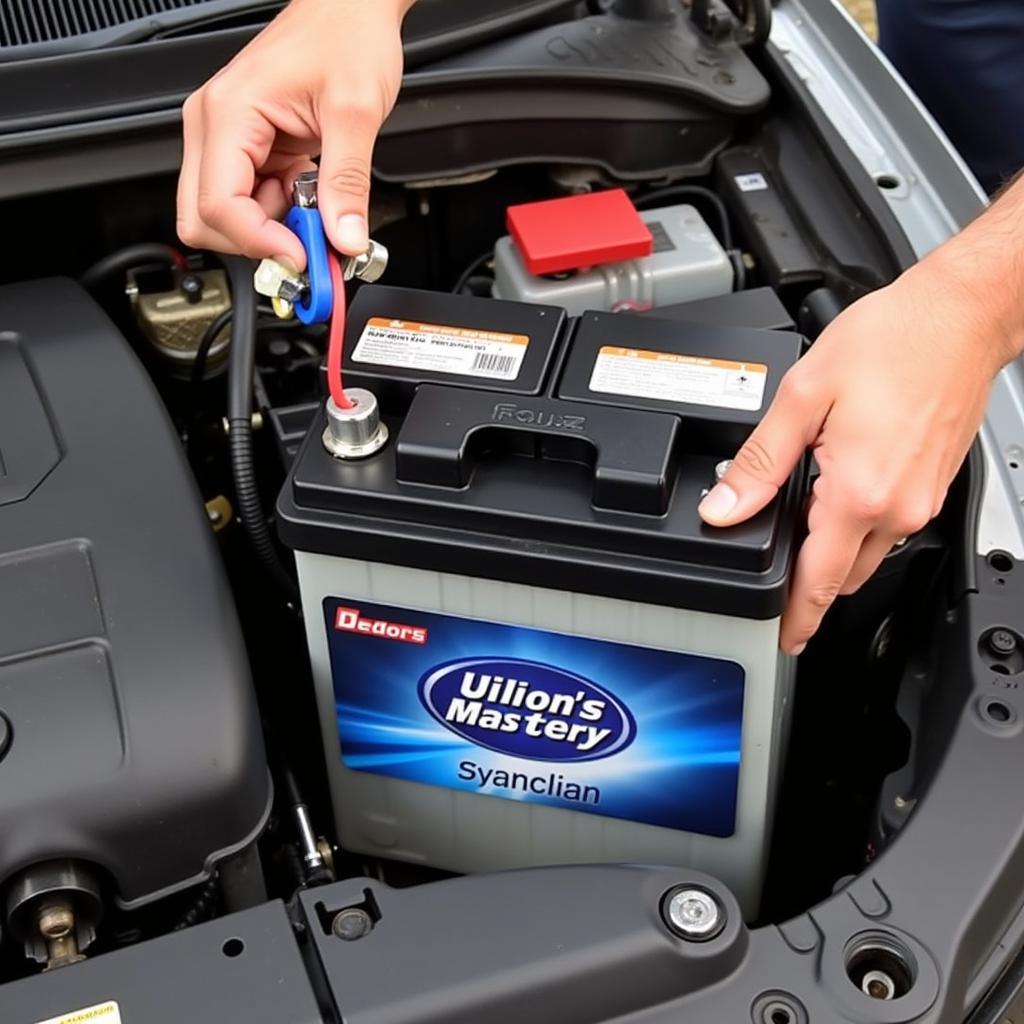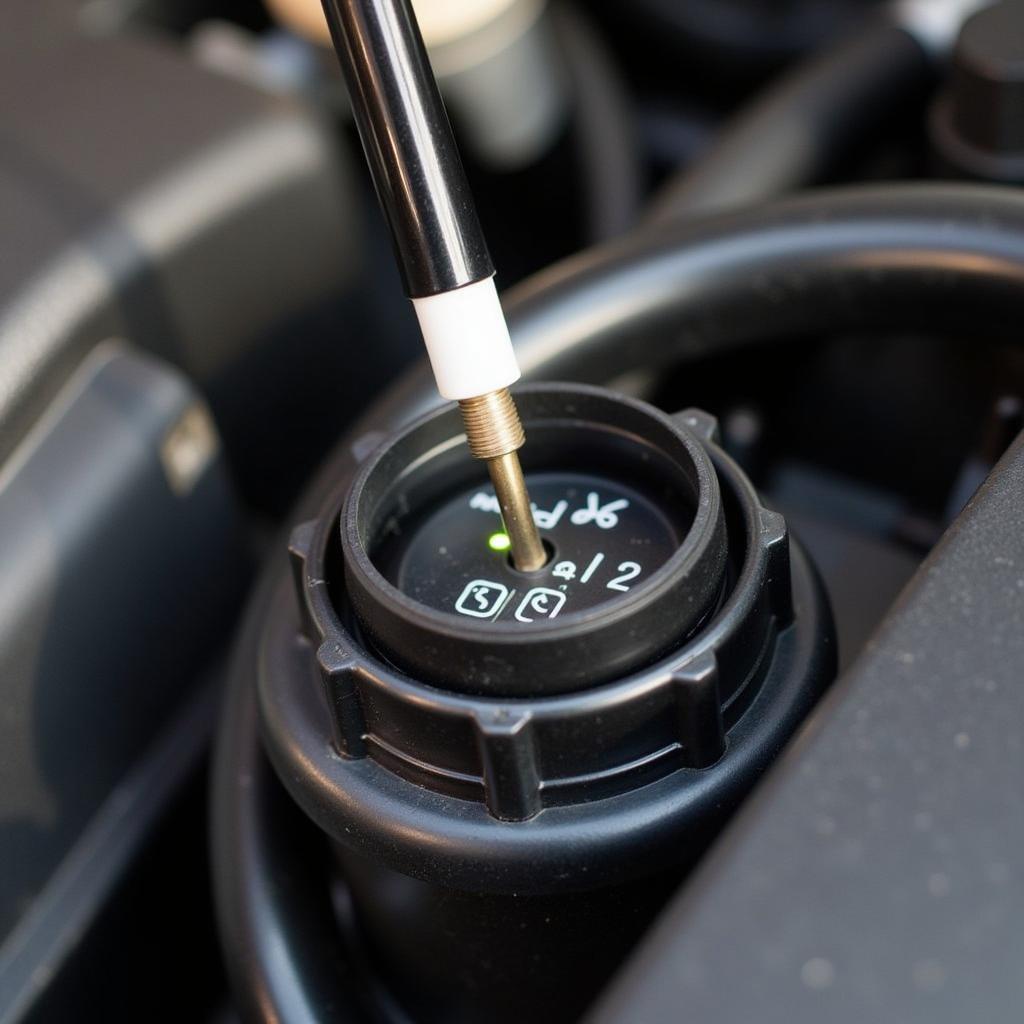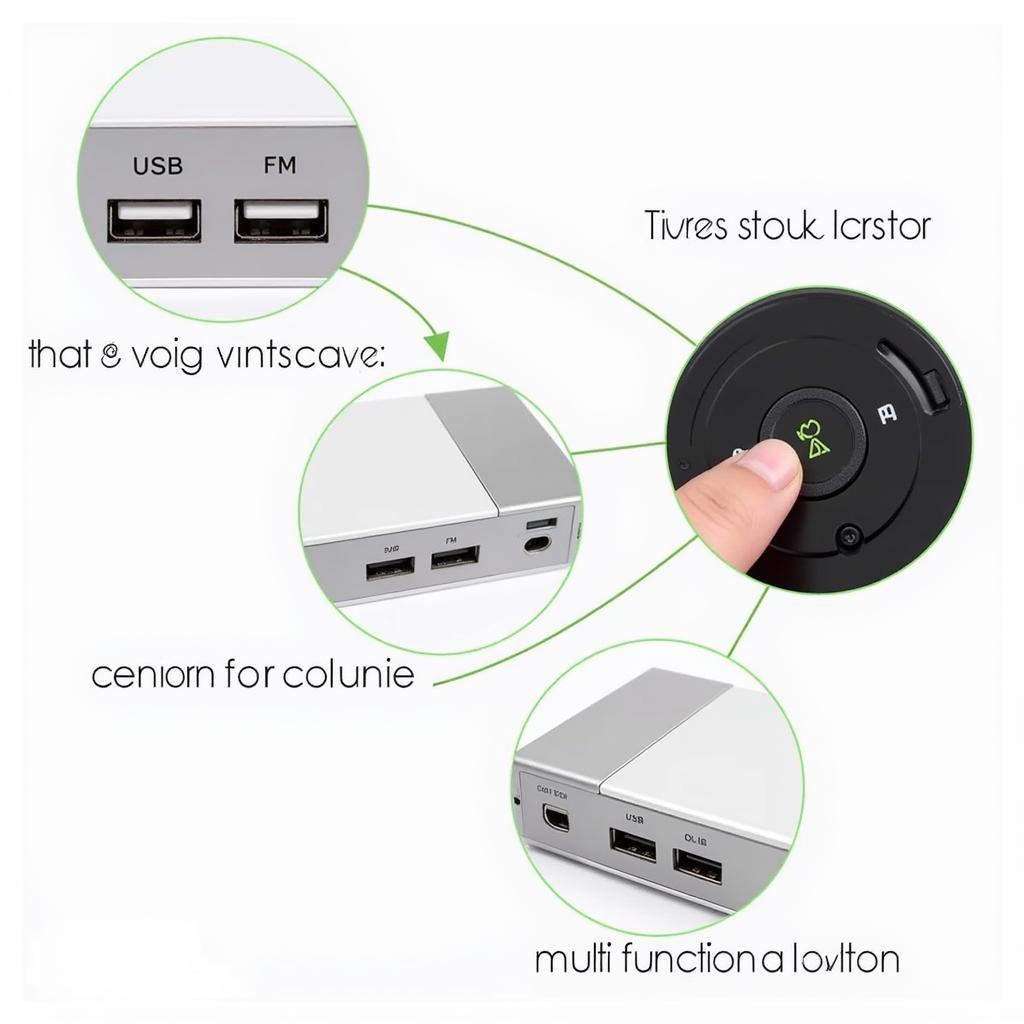A swollen car battery is a serious issue and definitely a bad sign. It indicates a dangerous chemical reaction within the battery and requires immediate attention. This article will explore the causes, dangers, and solutions for a swollen car battery, empowering you to take the right steps to protect yourself and your vehicle.
One of the most common causes of a swollen car battery is overcharging. When the alternator malfunctions and sends excessive voltage to the battery, it can lead to electrolysis, which breaks down the water inside the battery into hydrogen and oxygen gas. This gas buildup creates pressure, causing the battery casing to swell. signs you have a bad car battery. Another potential cause is excessive heat. High temperatures can accelerate the chemical reactions inside the battery, leading to gas buildup and swelling. This is particularly prevalent in hot climates or if the battery is located near the engine’s exhaust manifold. Finally, a faulty voltage regulator can also contribute to a swollen battery, as it fails to control the charging voltage properly.
Why is a Swollen Car Battery Dangerous?
A swollen battery poses significant safety risks. The built-up pressure can cause the battery to crack or even explode, releasing flammable hydrogen gas and corrosive sulfuric acid. signs battery is going bad. This can lead to fires, chemical burns, and damage to surrounding components in the engine bay.
 Exploded Car Battery Damage
Exploded Car Battery Damage
How to Diagnose a Swollen Car Battery?
Visually inspecting the battery is the first step. Look for bulging sides or a deformed casing. You might also notice a white powdery substance around the terminals, which is dried-up acid residue. If you suspect your battery is swollen, do not attempt to jump-start the car or perform any other electrical work. defective car battery symptoms.
What to Do if Your Car Battery is Swollen?
If you identify a swollen car battery, immediately disconnect the negative terminal using insulated tools. Avoid touching any metal parts of the car while doing so. Contact a qualified mechanic or a battery specialist to safely remove and replace the battery. Do not attempt to dispose of the battery yourself; they require specific handling and recycling procedures.
How to Prevent a Swollen Car Battery?
Regularly inspect your car battery for any signs of swelling or damage. Ensure your car’s charging system, including the alternator and voltage regulator, is functioning correctly. Have your battery tested periodically by a professional, especially if your car is exposed to extreme temperatures. will an alternator charge a bad battery.
Why is My Car Battery Swollen on the Sides?
Swelling on the sides of a car battery is a telltale sign of internal gas buildup, typically caused by overcharging or excessive heat.
Can a Swollen Car Battery Be Recharged?
No, a swollen car battery should never be recharged. It is permanently damaged and poses a significant safety hazard.
 New Car Battery Installation
New Car Battery Installation
How Much Does it Cost to Replace a Swollen Battery?
The cost to replace a car battery varies depending on the type and make of your vehicle. However, it is a relatively inexpensive repair compared to the potential damage a swollen battery can cause.
“A swollen battery is a ticking time bomb,” warns John Smith, Senior Automotive Technician at Smith Auto Repair. “Don’t delay addressing this issue. It’s a simple fix that can prevent serious damage and injury.”
Conclusion
A swollen car battery is a serious problem that needs immediate attention. Understanding the causes, dangers, and solutions will help you protect yourself and your vehicle. Regularly inspecting your battery and ensuring your charging system is functioning correctly can prevent this dangerous situation. signs that a car battery is going bad. Don’t take chances with a swollen car battery; address the problem promptly to ensure your safety and the longevity of your vehicle.


